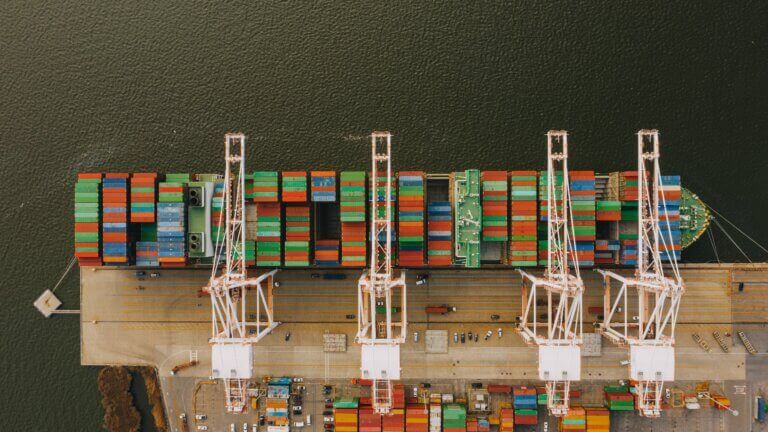Blog

Update: 12 September 2025 by Kelly Muniz Expansion of E-invoicing Scope Malaysia has expanded the scope of its mandatory e-invoicing requirements to include additional types of activities/transactions, according to the latest E-Invoice Specific Guideline (Version 4.4) released on 12 September 2025 by the Inland Revenue Board of Malaysia (IRBM). Key Updates Effective 1 January 2026, two additional […]

According to the latest global market report, Billentis, the Asia Pacific region is expected to achieve the highest annual e-invoice volume growth rates compared to Latin America and Europe until 2025. This is mainly because the Asian market, outside of South Korea, is new to the tax digitization journey and is accelerating the adoption of e-invoicing as […]

Japan’s new e-invoice retention requirements are part of the country’s latest Electronic Record Retention Law (ERRL) reform. Along with measures such as the Qualified Invoice System (QIS) and the possibility to issue and send invoices electronically via PEPPOL, Japan is implementing different indirect tax control measures, seeking to reduce tax evasion and promote digital transformation. […]

Singapore’s new Low Value Goods (LVG) rules came into effect at the beginning of the year. As of 1 January 2023, private consumers in the country must pay 8% GST on goods valued up to SGD 400 imported via air or post from GST-registered suppliers. From 1 January 2024, the GST will increase to 9%. […]

Thailand has permitted e-invoicing since 2012. From 2017 – following regulations issued on e-tax and e-receipts – taxpayers may prepare, deliver, and keep their invoices and receipts electronically, subject to prior approval from the Thai Revenue Department. Currently, the Revenue Department and the Electronic Transactions Development Agency (ETDA) are working together to improve the e-tax […]

Since 1 January 2019 foreign electronic service providers must issue electronic invoices, a type of e-invoice, for sales of electronic services to individual buyers in Taiwan. Alongside this, Taiwan’s local tax authorities have been introducing incentives for domestic taxpayers to implement e-invoicing despite not being a mandatory requirement. Before diving into the details of the e-invoicing […]

The Philippines continuous transaction controls (CTC) Electronic Invoicing/Receipting System (EIS) has been officially kicked off for the 100 large taxpayers selected by the government to inaugurate the mandate. Although taxpayers were still struggling to meet the new e-invoicing system’s technical requirements just before the go-live date, the Philippines upheld its planned deadline and went live […]

The global trend in the e-invoicing sphere for the past decade has shown that legislators and local tax authorities worldwide are rethinking the invoice creation process. By introducing technologically sophisticated continuous transaction control (CTC) platforms tax authorities get immediate and detailed control over VAT, which has proven a very efficient way to reduce the VAT […]

Unlike many other country initiatives that we have seen in the e-invoicing space recently, Australia does not seem to have any immediate plans to introduce continuous transaction controls (CTC) or government-portal involvement in their B2B invoicing. Judging from the recent public consultation, current efforts are focused on ways to accelerate business adoption of electronic invoicing. […]

During the last decade, the Vietnamese government has been developing a feasible solution to reduce VAT fraud in the country by adopting an e-invoice requirement for companies carrying out economic activities in Vietnam. Finally, on 1 July 2022, a mandatory e-invoicing requirement is scheduled to enter into force nationwide. 2020 e-invoicing mandate postponement Despite the […]

The Tax Bureaus of Shanghai, Guangdong Province and Inner Mongolia Autonomous Region have all issued announcements stating they intend to carry out a new pilot program for selected taxpayers based in some areas of the provinces. The pilot program will involve adopting a new e-invoice type, known as a fully digitized e-invoice. Introduction of a […]

The global e-commerce market continues to transform in today’s digital world. E-commerce transactions consist of a variety of digital services and products such as software, applications, streaming media, web hosting, online advertising, e-books, online newspapers, and various others. From an indirect tax perspective, nations across the globe apply destination-based VAT and GST legislation to these […]

Having originated in Latin America, the next region set to embrace continuous transaction controls is Asia. Several jurisdictions in the region have announced their intent to introduce a new invoicing system as soon as possible. In this episode of the Sovos Expert Series, Harri Vivian sits down with Victor Duarte, Senior Regulatory Counsel at Sovos […]

In Part I of our series on the VAT Evolution, we explored the motivations of tax authorities and governments around the world to embrace digitization and technology of a method of increasing revenue collection and shrinking tax gaps. Then in Part II, Three Focus Areas for VAT we discussed some of the priority concerns for […]

Saudi Arabia will start its introduction of a new e-invoicing system from 4 December 2021. The mandate will require all taxable persons residing in the Kingdom to generate, process and store e-invoices electronically. In this episode of the Sovos Expert Series, Harri Vivian sits down with Selin Ring, Regulatory Counsel at Sovos, to explain how […]

Welcome to the Sovos Expert Series, today we will be talking with Selin Ring, Regulatory Counsel at Sovos about your e-invoicing obligations when operating in South Korea and how these differ from your VAT requirements elsewhere. South Korea was one of the first countries to adopt an e-invoicing regime. The first mandate came into […]

In December, the expansion of China’s B2B e-invoicing pilot program, that enables certain taxpayers to voluntarily issue VAT special electronic invoices, was announced by China’s State Taxation Administration (STA). These e-invoices can be used to claim input VAT so are generally used for B2B purposes whereas VAT general invoices cannot so are commonly used for […]

Update: 8 March 2023 South Korea has recently approved a tax reform which introduces several measures for 2023, among which is the possibility of issuance of self-billing tax invoices. This tax reform amends the current VAT law to allow the purchaser to issue invoices for the supply of goods and services. However, this will only […]